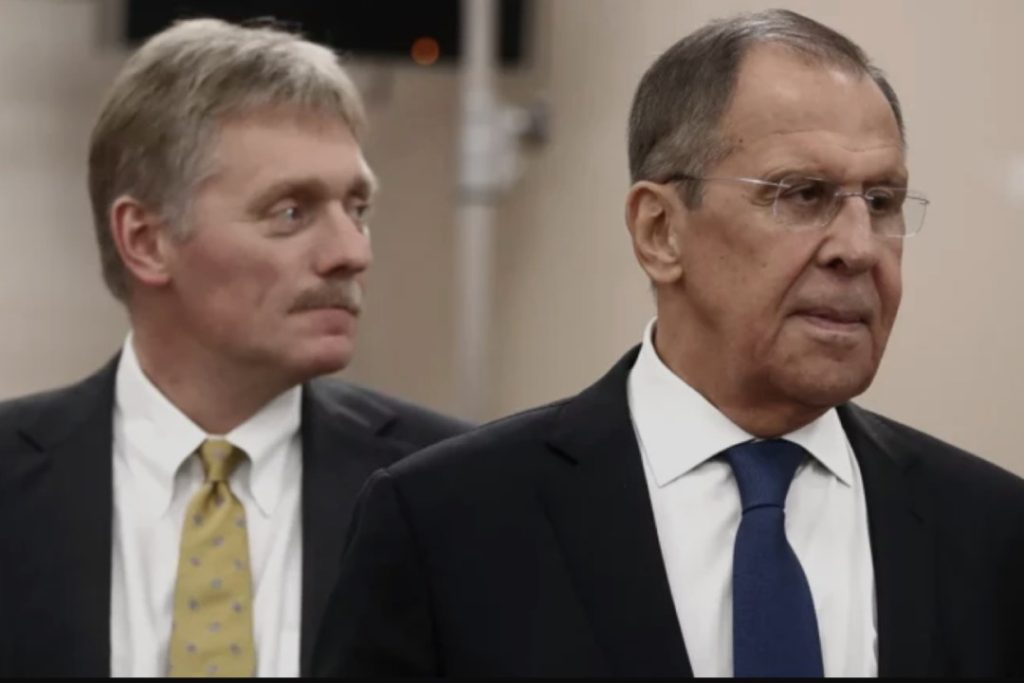According to the Institute for the Study of War, Kremlin spokesperson Peskov, Defense Minister Shoigu, and Foreign Minister Lavrov have increased information operations with the goal of forcing Ukraine into negotiations on the Kremlin’s terms and generating fear in the West in order to limit their support for Kyiv.
In its latest assessment, the ISW observed Shoigu’s attempts to use threats to prevent France from aiding Ukraine while claiming to advocate for peace negotiations. Shoigu’s actions are part of a larger Russian media campaign that aims to persuade Western countries to compel Ukraine into negotiating on Russian conditions.
Peskov’s statement regarding a direct conflict between NATO and Russia implies that the Kremlin will intensify existing media campaigns to urge Western caution.
During a meeting with foreign ambassadors from non-Western countries, Lavrov engaged in media operations, claiming to be interested in negotiations while denouncing Ukraine’s peace proposal and implying Russia’s willingness to negotiate on conditions favorable to the Kremlin.
Military observers have underlined Shoigu’s threats to France in an attempt to dissuade backing for Ukraine. Shoigu pretends to be interested in peace discussions. This is part of a larger Russian propaganda campaign, which aims to persuade Western countries to compel Ukraine into uneven negotiations on Russia’s terms.
The Kremlin has utilized this generic influence operation concerning NATO escalation to explicitly target France, in response to French President Emmanuel Macron’s calls for the West to expand the level and type of security support it provides to Ukraine.
Putin’s spokesman, Peskov, stated that NATO and Russia are in “direct confrontation.” As a result, the Russians are stepping up their present information operations in order to push the West to rely on self-defense.
On April 4, Peskov stated that Russia-NATO ties have “slipped to the level of direct confrontation” and that NATO is “already involved in the conflict surrounding Ukraine.”
Peskov accused NATO of advancing closer to Russia’s borders, most likely referring to Finland and Sweden’s recent membership in the alliance, and said that NATO was extending its military infrastructure closer to Russia.
Military analysts have underlined that Russian officials have long sought to portray NATO and the West as existential threats to Russia in order to justify Putin’s war against Ukraine. For example, on March 18, Russian President Vladimir Putin stated that a full-scale war between NATO and Russia was unwanted but possible.
Peskov’s repeated statements that NATO and Russia are already in a “direct confrontation” reinforce this narrative, but they are most likely still part of Russia’s reflexive control campaign, which uses threatening language to delay and influence key decisions about Western support for Ukraine.
This Kremlin narrative is also likely a bid to make NATO’s defensive actions in reaction to Russia’s open aggression look provocative.
Lavrov also advocated for information operations, which simulated interest in negotiations. Lavrov used a gathering of dozens of foreign ambassadors from non-Western countries to denounce Ukraine’s “peace formula” while stating that Russia was willing to negotiate on Kremlin-friendly terms.
The ISW says that Russia is still preparing for a possible battle with NATO forces. The Russians are implementing military reforms, reestablishing the Leningrad Military District and Moscow Military District in the country’s west. Russian authorities have accused NATO of giving Russia an excuse to re-establish the district on the Finnish border.
“ISW continues to assess that Russia’s maximalist objectives, which are tantamount to full Ukrainian and Western surrender, remain unchanged, and that any Russian statements suggesting that Russia is interested in peace negotiations are very likely attempts to force the West to make concessions on Ukrainian sovereignty and territorial integrity,” the report stated.

